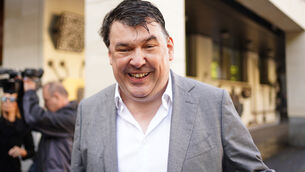Maternal advice should include the nugget: ‘Don’t turn into your father’
It’s already been reprinted three times.
Some of the bits of maternal advice contained in it are mysterious to outsiders. For example, celeb solicitor Gerald Keane says his mother constantly told him, “Always remember you are from Cork.” I wouldn’t have thought, myself, that if one was from Cork, the location of one’s birth would readily slip one’s mind, but, hey, I’m not only a Dubliner, but a northside Dubliner, white socks and all.















